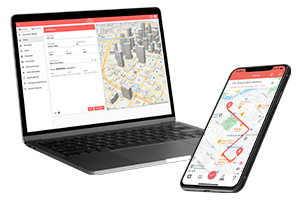Last updated on May 22, 2023
Picture this: You’re a hard-working freelancer, a budding entrepreneur, or an on-the-go gig worker, and your vehicle is as much a part of your work life as your laptop or your toolbox. But did you know that your trusty four-wheeled companion could be a hidden source of tax deductions?
Buckle up, folks, because today we’re diving headfirst into the twisty-turny world of Schedule C (Form 1040) and the mileage deduction.

Schedule C (Form 1040): Your Golden Ticket
You may be wondering, “What on earth is the Schedule C (Form 1040)“? Well, in a nutshell, it’s your best friend come tax season. It’s where you report your income and expenses from your business or freelance work. And yes, that includes mileage expenses, which we’ll get to in a jiffy.
Miles Matter: The Skinny on Documenting Vehicle Expenses for Taxes
Now, let’s talk mileage. That’s right, every mile you drive for work purposes, from meeting clients to picking up supplies, can be deducted from your taxable income. Think of it as a thank you from Uncle Sam for doing your bit in the economy. But hold your horses, you can’t just pluck a number out of thin air. You need to keep an accurate mileage log. In terms of tax reporting, these mileage expenses should be entered in Line 9 of Schedule C (Form 1040).
Keep Track to Keep Your Cash: The Importance of Mileage Logging
Mileage logging is a lot more simple than it sounds. Instead of jotting down your start and end mileage for each trip, the date, and the purpose of your trip, an automatic mileage tracker app like MileageWise will do the entire task for you…and it’s worth its weight in gold when you’re looking at a hefty tax deduction.
Make sure to check out the MileageWise app, the best tool on the market for logging mileage accurately and easily. A real game-changer!
Filling Out Schedule C (Form 1040): Avoiding Common Pitfalls
When it comes to completing Schedule C for tax filings, ensuring absolute accuracy is critical, and this includes accounting for all your expenses, not just mileage. Being honest and precise in your reporting is crucial. If the IRS identifies an unusually high mileage claim, they might initiate an audit, an eventuality everyone prefers to avoid.
This is where MileageWise steps in with its IRS-Proof mileage log. It simplifies tracking and reporting mileage, making your records accurate and transparent. With MileageWise, you significantly reduce the chance of triggering an IRS audit due to discrepancies in your mileage claims, underscoring the timeless wisdom that “honesty is the best policy.”
IRS Documentation Changes and Staying Informed
Tax laws can be as unpredictable as the weather, hence the importance of staying abreast of the most recent changes to Schedule C (Form 1040). The situation becomes particularly critical if the IRS rejects your mileage log.
To avoid such a predicament, employing MileageWise’s 100% IRS-Proof mileage log can be an invaluable solution. By staying informed and consulting with a tax professional, or by conducting diligent online research, you can steer clear of potential complications and save yourself from considerable distress in the long run.
Conclusion: Your Route to Tax Deduction Success
And there you have it, folks! The secret to maximizing your tax deductions is as simple as logging your miles and filling out your Schedule C accurately. So, next time you hit the road for work, remember: every mile is money in your pocket. And don’t forget to put those mileage expenses in Line 9 of Schedule C (Form 1040).
So, fire up that engine, grab your MileageWise app, and let Schedule C (Form 1040) be your roadmap to tax savings. Happy driving, and even happier saving!
Download MileageWise’s automatic mileage tracker app from Google Play or the App Store & try it for free for 14 days. No credit card required!



